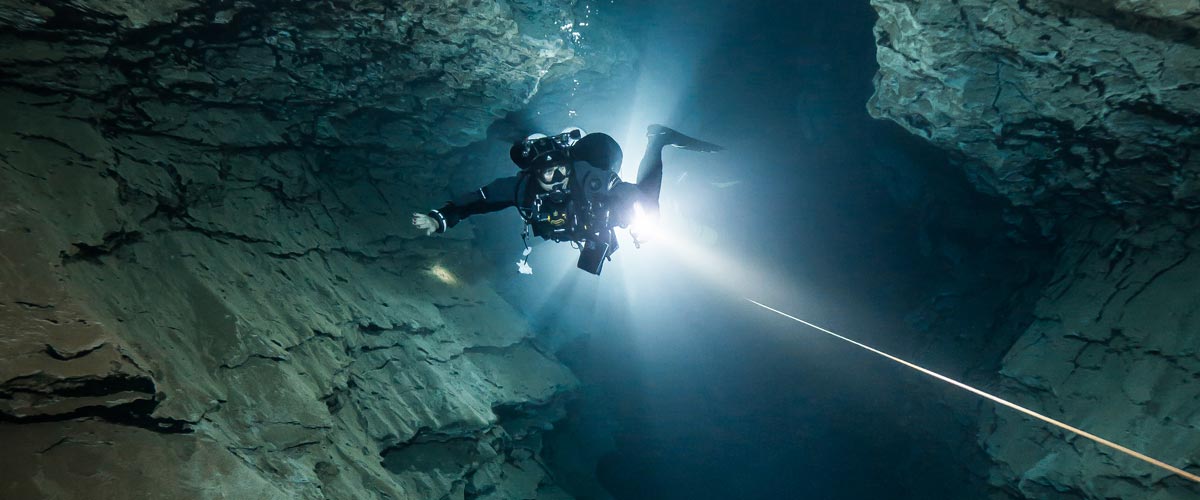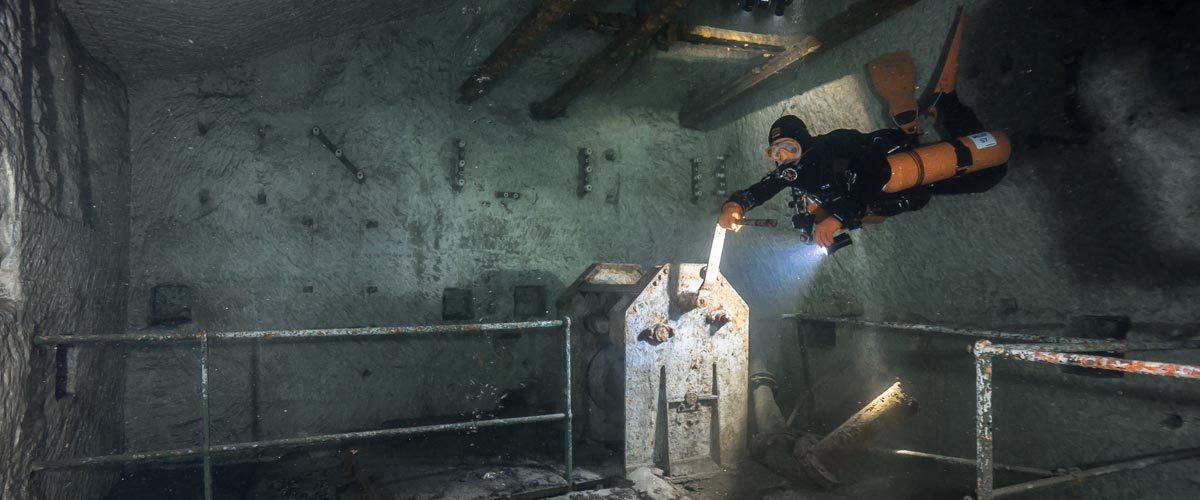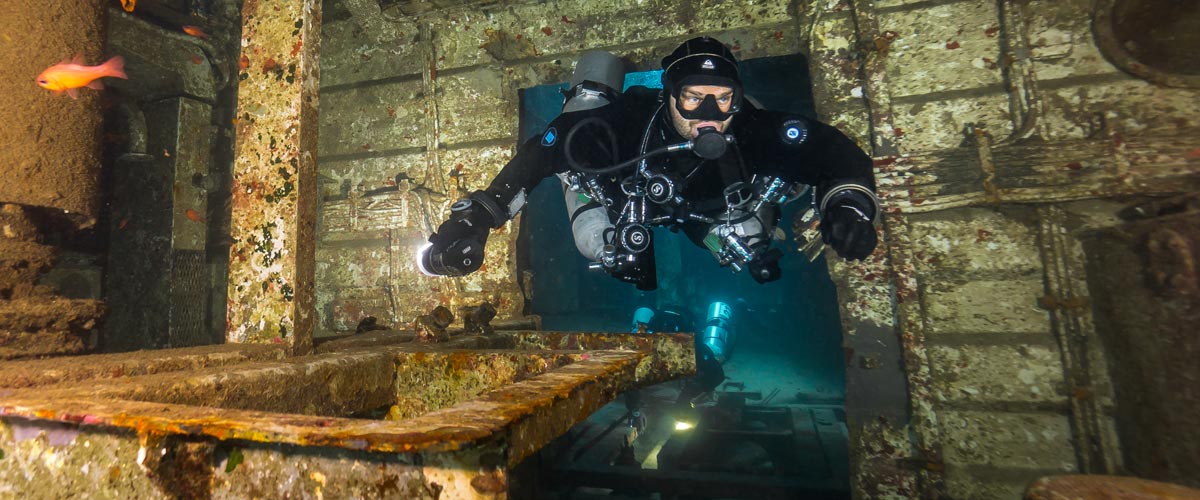Dive Training Blogs
Top jobs in Scuba Diving
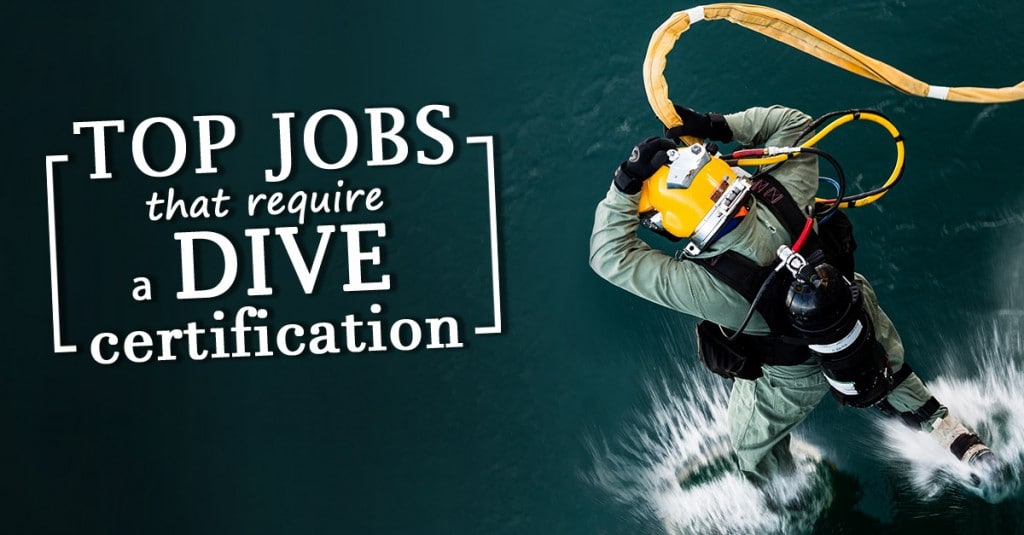
By: Brittany Hadfield
So you’ve gotten your first diving certification and now you’re hooked. You’re bored of your current job and you’re looking for something more exciting, right? While it is possible to have a career in diving with only an open water certification, often times it takes more training to achieve professional status. Below, we describe a few careers in which you can dive for a living! What could be better?
Dive Instructor
Salary: $31,000 – $50,000
Of course there’s the most obvious job of all… scuba instructor! This job sounds like the dreamiest one of all… You spend your days on dive boats and exploring the underwater world. You might even get to live in a beautiful tropical location if you’re one of the super lucky ones. Being a dive instructor comes with a lot of responsibility; you have to make sure that your students are using the proper techniques and doing so safely. With that also comes the reward of introducing and guiding students into underwater discovery and awe. Overall, if you’re looking for a job that combines teaching and diving this might be the one for you.
Underwater Photographer
Salary: $35,000 – $60,000
Do you have a knack for photography? Love to dive? This might be the job for you. Underwater photographers take photos and videos of marine life, coral reefs, shipwrecks, and caves. These photographers might work in the fashion and hospitality industries as well, photographing underwater models and resort advertisements. While the photographer’s main job might be shooting pictures, they also need to be well-versed in their editing skills, they also need to be able to adjust light, coloring, and staging challenges that shooting underwater brings.
To have a career as an underwater photographer, one must have the proper qualifications as a diver or snorkeler to perform this job. This starts at an open water certification and can advance as high as you wish. SDI also offers an underwater photography course for those who are interested in learning more. This is an introductory course and if you want to learn more we would suggest taking some higher level courses through a local workshop or at the college/university level. While some photographers have a high school diploma only, others find it helpful to seek higher education to better learn processes and equipment.
Golf Ball Diver
Salary: $36,000-55,000
This one isn’t an option that people think of often, but it’s definitely legitimate if you have the proper documentation; this being an agreement or contract with the course you plan to dive. If all you’ve ever experienced in diving is crystal clear, warm water, this might not be the job for you. Most of the time the waters golf ball divers are going into is murky and contaminated from pesticides and other chemicals. These waters often contain dangerous animals such as water moccasins, gators, and snakes. Let’s not forget about the downed trees, branches, hazardous trash such as broken glass and barbed wire, and low to zero visibility. Because of these factors, divers should be extremely confident in their abilities as a diver and also know self rescue skills. This job requires an advanced scuba diver certification due to the low to no visibility in the ponds of the golf courses. Divers might also consider taking a drysuit and full face mask course due to the nature of the waters they’re diving.
After you’ve taken into account all of the factors listed above, you then have to know about how competitive this business is. In the business of golf ball divers, you have poachers who sneak onto the courses at night and dive or wade on the edge to gather balls. The way a golf ball diver business works, a diver has a contractual agreement with the course(s) they are diving at that they get back a certain amount of money per each ball collected (this fee is usually 8-10 cents). Sometimes, the course will even take a percentage of balls back to use on their driving range. A diver will collect somewhere around 3,000 balls on an average day (8am-12pm) and will get back half of the original cost of those balls (some going for as high as $50 per dozen when new).
Commercial Diving
Salary: $54,750 – $93,910
This job isn’t one you take on a whim because it’s one that comes with many risks. It also varies from one extreme to another. Commercial diving is a very broad field ranging from underwater inspection to HAZMAT jobs. Commercial diving means working below the surface of water, performing tasks such as repairing, removing, or installing equipment underwater. Commercial divers use power & hand tools to conduct tests/experiments and rig explosives underwater. There are usually four factors to determining a commercial diver’s salary which include: diver experience, employer, location, and depth of dive. The commercial diving field isn’t one that is limited by location, but often you would work for 4-8 weeks in the field and have anywhere from 10 days – 4 weeks off to decompress and relax. This career is one that requires specialized schooling rather than a specific certification.
Marine Archaeologist
Salary: $39,000 – $72,000
Do shipwrecks interest you? Does the thought of finding sunken treasure excite you? Marine Archaeology might be the job for you. These are the people who study the ocean floor looking for shipwrecks and sites that might contain human remains to items of monetary value. You might also be in charge of keeping a database of shipwrecks in your area and updating it on a regular basis to make sure looters don’t disturb wreck sites. Marine archaeologists are also the people called when someone wants to build something in the ocean that might disrupt the ocean floor. They check the site to make sure the area is okay to build in and that there are no other wrecks that will be affected. Overall, your job here would be to preserve underwater artifacts and protect local wildlife. This job requires a certification that will allow you to dive shipwrecks, you’ll need advanced buoyancy, and even nitrox for longer dives.
Public Safety Diver
Salary: $39,000
Do you know who deals with accidents and crime scenes in bodies of water? Did you know there are specialized diving certifications for law enforcement officers? These divers are called public safety divers; they can be found diving into bodies of water to rescue or recover people or evidence in accidents and on crime scenes. Often times, these divers are faced with dangerous diving conditions with little to no visibility. Public safety diving requires very intense training; one must be prepared to see things that are not only frightening, but also very heartbreaking. You can learn more about being a public safety diver by visiting: https://www.tdisdi.com/erdi/get-certified/
Diving can be extremely rewarding recreationally, but if you truly can’t get enough there’s no reason you shouldn’t explore it as a career. So jump in, do some research, and most importantly keep on diving!
To find out more about International Training, visit www.tdisdi.com.

Blogs
Intro to Tech: What is it about?
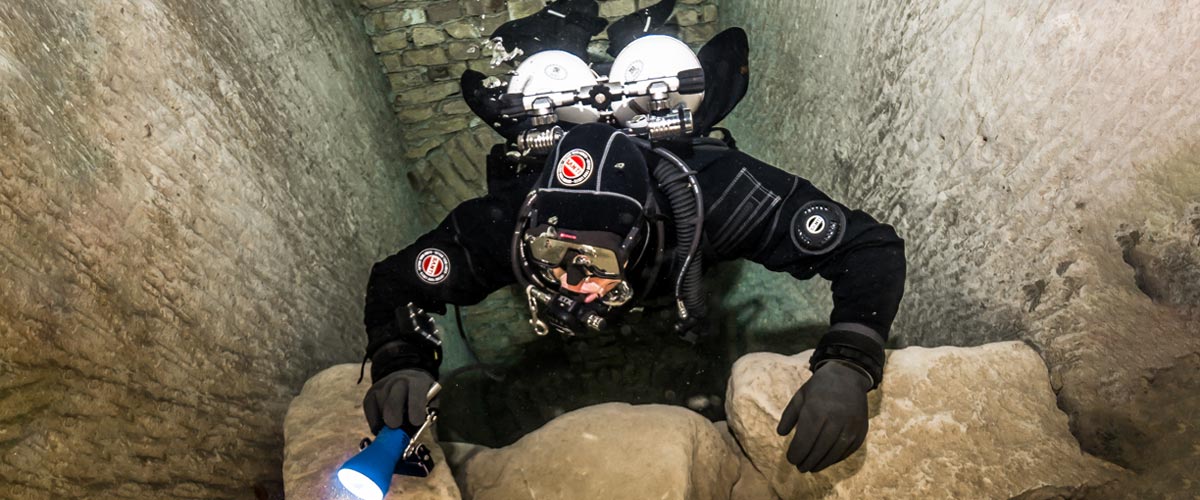
Article by José Pablo Mir
Pictures by Cezary Abramowski
The world of technical diving is exciting. It opens the door to new sites, depths, and bottom times. More importantly, it opens our minds to a new way of planning, facing, and experiencing dives, even those not purely technical.
Becoming a technical diver is a process, and like in other aspects of life, we should find the proper entry point that suits us best based on our knowledge and experience. The Introduction to Technical Diving course from TDI -the world’s largest and most recognized technical diving teaching organization- is the best option for divers who have yet to gain experience in the fundamental aspects of this new practice. The course’s content and its embrace of new techniques and technologies make it possible to acquire a solid foundation to learn and gain experience in this practice properly.
Becoming a technical diver is not something that happens overnight, whether deciding to become one or receiving a certification card stating we are now technical divers. It is a slow process extending farther away than any introductory course. It requires effort and dedication. But it will bring us satisfaction from day one -or two.
It is a matter of mentality
First, we must understand and accept that technical diving, involving greater depths, longer bottom times, exotic gases, virtual or real ceilings, and more, comes with higher levels of risk than the sport diving we have been practicing until now.
Although this discussion usually starts with a warning about risks, as I’ve done in the previous sentence, our practice is not a game of chance.
Technical diving is a rational activity that requires maturity and good judgment, and we will put everything into ensuring that each dive is a successful one -meaning we return from it safe and sound. With this understanding, we will strive to establish a mental attitude more aligned with our practice and its realities.
This new “technical diver” mindset we will develop will lead us to be more cautious in our executions, more analytical in our plans, more rational in our strategies, and more detailed in our procedures.
Experience will keep teaching us to know ourselves better, to keep our anxiety and other emotions under control, and to manage our impulses. Over time, our senses will sharpen, and we will be more attentive to the particulars of the situation we find ourselves in.
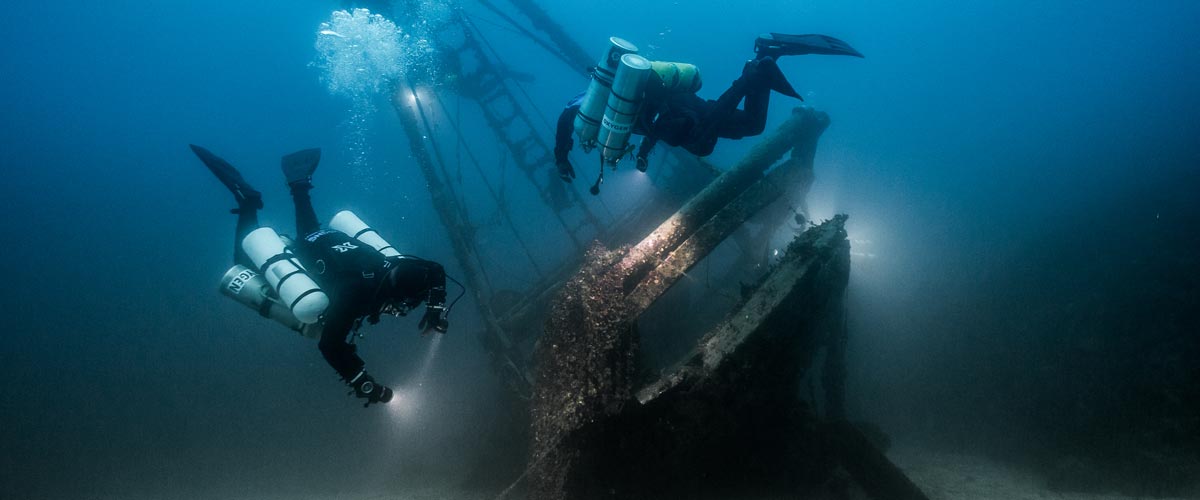
Strategies and procedures
Our strategies, those broad guiding lines tracing the path to follow, from how to approach planning to where, with what, and how we are willing to get there, will be more specific and more practical. Not because they magically become so, but because we will consciously and deliberately frame them that way.
We will establish clear, concise, and realistic procedures. Not only for the undesirable situations that may present themselves but also for those that are part of our dive objectives.
Even though, as technical divers, we often use equipment different from what we were previously accustomed to, it is essential to note that the gear does not make the diver. In a way, we could consider such equipment as the necessary tools to implement what our goal seeks to achieve, according to our strategies and procedures.
Technique plays an important role
We must put our greatest effort into learning and perfecting the different techniques we will be acquiring. Buoyancy, trim, propulsion, cylinder handling, deploying DSMBs and lift bags, valve drills, and more are essential skills we must begin to master to progress in our art. What we cannot do, when we need to do it, can harm us.
Our techniques must be effective and achieve the purpose for which they were devised. But they must also be efficient and require the least resources possible, including the time they take and the effort they demand. Effectiveness and efficiency will prevail over beauty and other considerations that may come to mind, although none of them should be mutually exclusive. A technique executed efficiently and effectively tends to have an inherent beauty.
Refining techniques is a lifelong mission. Some of them will be easy to master from the go; others, on the other hand, will be our life mission and will require many repetitions just to resemble the idea we have in mind of how they should be executed.
We must consider the environment
Our learning, the needs and musts of the practice we engage in, the experience we gradually gain, our strategies and procedures, and even our equipment and tools change with the environment.
Diving in the ocean, everything about us must be suitable for ocean dives. Conditions there rarely emulate those found in a pool, lake, or river. Variable winds and currents, greater depths, visibility conditions, other divers with uncertain skills around us, marine life, maritime traffic, distance from the coast, and many other factors add complexity and uncertainty.
It is never necessary to master the pool on the first day, but planning and aspiring to gradually cope with the ocean’s conditions is essential.
The cost of good training
We are aware that our resources are often scarce in relation to the possibilities of use we could give them if they were not. To a greater or lesser extent, we are part of the economic reality in which we are embedded.
Fortunately, the cost of good technical diver training is not an entry barrier. Comparing training and equipment costs, we see that the former are generally lower. Yes, lower cost for personalized service, essential to our future
performance and safety, than for a series of mass-produced products that are mere, albeit necessary, tools for an end.
The value of good training
The value of the training we received encompasses a range of characteristics, from emotional and methodological to technical and technological. TDI and its Introduction to Technical Diving course offer a deep and modern approach, with a teaching strategy that aims to create thinking divers, not merely obedient ones.
As technical divers, our knowledge is our primary tool. In this type of activity, what we don’t know can harm us.
Is this course optional?
Unfortunately, the fact that this Introduction to Technical Diving course is not a prerequisite for any subsequent training is an invitation to consider it optional. And we all know what usually happens to “optional” under budget constraints.
However, this course should be seen as optional only by those divers who are somehow familiar with the use of technical equipment, who have a mindset more in line with the requirements of this type of diving, who plan and execute the dives the proper “technical” way, who know their gas consumption rate, who are not intimidated by non-decompression tables, who feel comfortable using their dive computers, and know the techniques and have at least an acceptable level of buoyancy, positioning, and propulsion. Those can go straight to a more advanced training course, such as TDI’s Advanced Nitrox.
We must ask ourselves whether or not we are in that group.
Remember our goal: to have fun
Recreational diving is our passion. Jumping into the water carrying heavy equipment and having properly dotted our I’s and crossed our T’s have only one ultimate goal: fun. This is the activity we have chosen as a hobby. We must enjoy it; it must give us pleasure and make us vibrate.
Having a good time is not optional!
Blogs
Four opportunities to go pro in 2024 with Dive Friends Bonaire
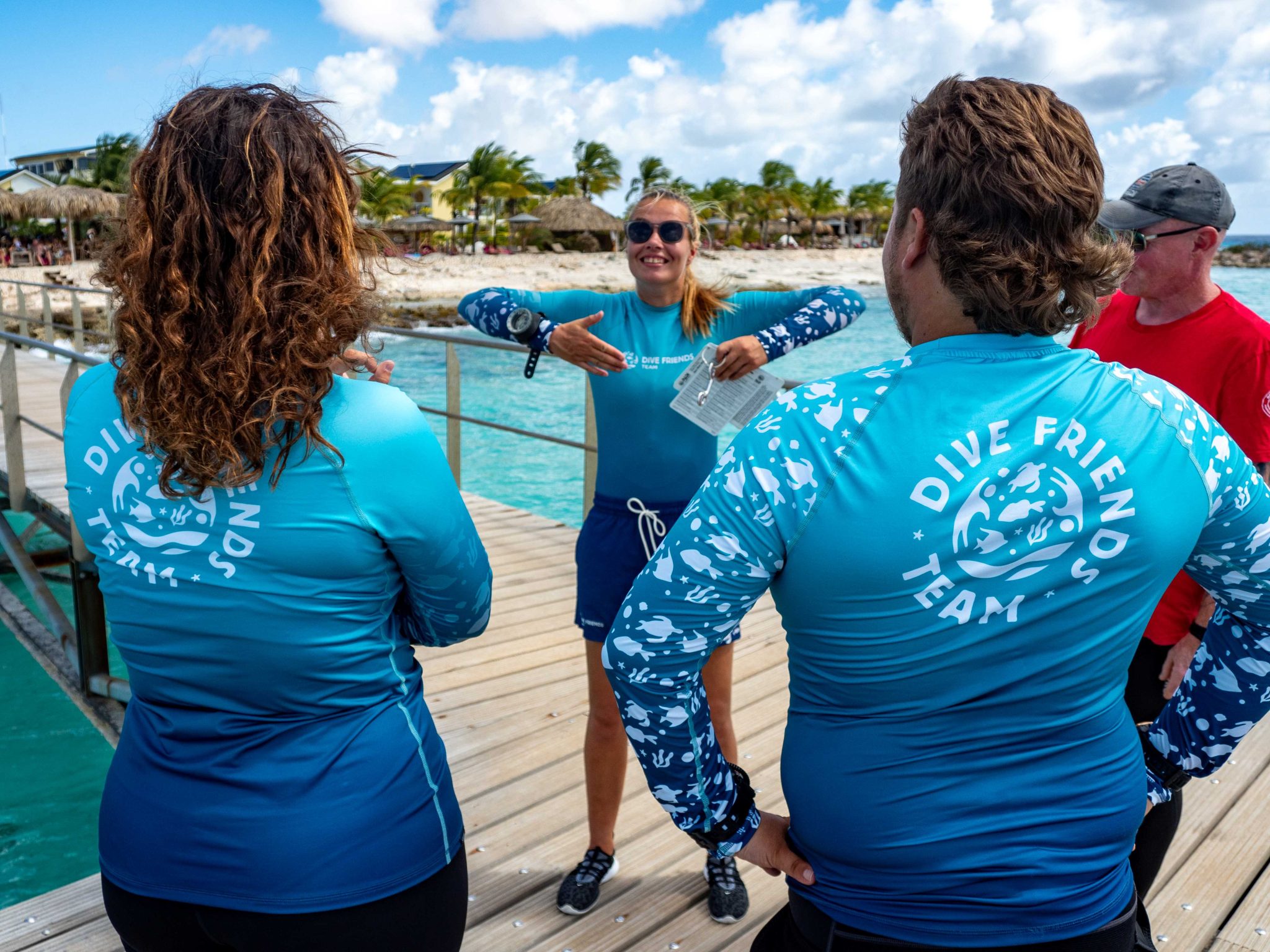
Dive Friends teaches the Instructor Development Course (IDC) several times a year to students who are eager to share their passion for diving with the world.
Dive Friends is known for the personal approach throughout the course. Their in-house course director will lead the students through every essential step, mentoring them to achieve their fullest potential as a dive instructor.
Applications for the following IDC start dates are now open:
- 12 April
- 5 July,
- 20 September
- 29 November
Partnership with Casita Palma
If the student opts for the IDC-Deluxe or IDC-Supreme package, their accommodation will be arranged for them at Casita Palma. This small and quiet resort is within walking distance from Dive Friends Bonaire’s main dive shop location and has everything you need to relax after an intense day of IDC training. Breakfast is included, so the student will always be fuelled and ready for their day.
Contact Dive Friends Bonaire’s Course Director Eddy for more information: coursedirector@divefriendsbonaire.com.
-

 News3 months ago
News3 months agoHone your underwater photography skills with Alphamarine Photography at Red Sea Diving Safari in March
-

 News3 months ago
News3 months agoCapturing Critters in Lembeh Underwater Photography Workshop 2024: Event Roundup
-

 Marine Life & Conservation Blogs3 months ago
Marine Life & Conservation Blogs3 months agoCreature Feature: Swell Sharks
-

 Blogs2 months ago
Blogs2 months agoMurex Resorts: Passport to Paradise!
-

 Blogs2 months ago
Blogs2 months agoDiver Discovering Whale Skeletons Beneath Ice Judged World’s Best Underwater Photograph
-

 Gear Reviews2 weeks ago
Gear Reviews2 weeks agoGEAR REVIEW – Revolutionising Diving Comfort: The Sharkskin T2 Chillproof Suit
-

 Gear Reviews3 months ago
Gear Reviews3 months agoGear Review: Oceanic+ Dive Housing for iPhone
-

 Marine Life & Conservation2 months ago
Marine Life & Conservation2 months agoSave the Manatee Club launches brand new webcams at Silver Springs State Park, Florida















